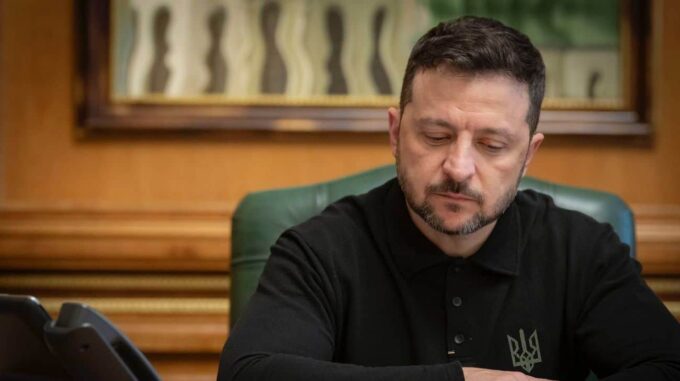Zelensky has approved the composition of the Ukrainian delegation for negotiations with Russia in Istanbul

Ukrainian President Volodymyr Zelensky has officially signed and approved the structure of the delegation that will represent our country during the planned negotiations with the Russian Federation in Istanbul, Turkey. This important event took place on May 15, and the corresponding decree No. 306/2025 was published on the official website of the Office of the President of Ukraine. As reported by «European Pravda,» the decision was made with the aim of exploring ways to achieve just and sustainable peace, which is especially relevant in the context of the ongoing Russian-Ukrainian conflict. The Ukrainian delegation will be led by Defense Minister Rustem Umerov — a key figure in the defense system and one of Ukraine’s main representatives in the negotiation process. In addition to him, the delegation includes one of the most influential diplomats, Serhiy Kyslytsya, the first deputy minister of foreign affairs, as well as several high-ranking officials in the security and defense sectors. Specifically, the team includes Oleksandr Poklad — deputy head of the Security Service of Ukraine, Oleg Luhovskyi — the first deputy head of the Foreign Intelligence Service, and Евген Shinkaryov — deputy chief of staff of the Air Force Command of the Armed Forces of Ukraine. The list also features legal experts, notably Oleksiy Malovatsky, head of the International and Operational Law Department of the Central Legal Directorate of the General Staff. The Ukrainian delegation comprises several other experienced officers and advisors, including Oleksandr Sherikhov from the Main Operational Directorate of the General Staff, Protocol Officer Heorhiy Kuzmichov, and adviser to the Head of the Office of the President Oleksandr Bevz. It is important to note that Zelensky’s decree allows for changes to be made to the delegation’s composition with the agreement of the head of state — he has the authority to appoint new members or make adjustments to the already approved team. The document also outlines several confidential negotiation directives that regulate the procedure and strategic objectives of the negotiation process. What prompted this step? Before heading to Turkey, President Volodymyr Zelensky traveled to Ankara to conduct consultations and coordinate key aspects of the negotiation process. It was expected that the leaders of Ukraine and Russia, including Vladimir Putin, would meet in Istanbul; however, this idea was not realized. According to Kremlin spokesman Dmitry Peskov, Russian President Vladimir Putin does not plan to go to negotiations in Istanbul; instead, Russia sent a lower-level delegation led by Putin’s aide Vladimir Medinsky. This news caused some disappointment in Kyiv, as Ukrainian diplomats had hoped for a higher-level Russian representation. According to several experts and political analysts, this situation significantly complicates the prospects for achieving substantial results during the negotiations. At the same time, stakes in this complex diplomatic game are rising: the US and other allies have already expressed concern about the possibility of a breakthrough in talks, and U.S. Secretary of State Marco Rubio noted that given the level of the delegations, chances for progress are minimal. On the evening of May 14, Russian President Vladimir Putin approved the composition of his delegation for participation in negotiations with Ukraine, but the head of state’s list did not specify its members. The head of the Russian delegation was appointed as Vladimir Medinsky, his aide who had already participated in similar meetings in 2022. Medinsky has grown into the role of Russia’s main mediator in this negotiation process, and his candidacy is considered key in the current talks. Thus, the situation surrounding the upcoming negotiations in Istanbul remains quite tense and uncertain. Ukraine, fully aware of the difficulty of the situation, is aimed at seeking a fair peaceful settlement; however, the breakthrough level will depend not only on diplomatic efforts but also on the political will and readiness of the parties to compromise. This state of affairs once again emphasizes how crucial and complex current diplomatic processes are during a time of global crisis — particularly for Ukraine, which is fighting for its future and independence, striving to find a solution that would halt the bloodshed and restore trust for peacebuilding.

